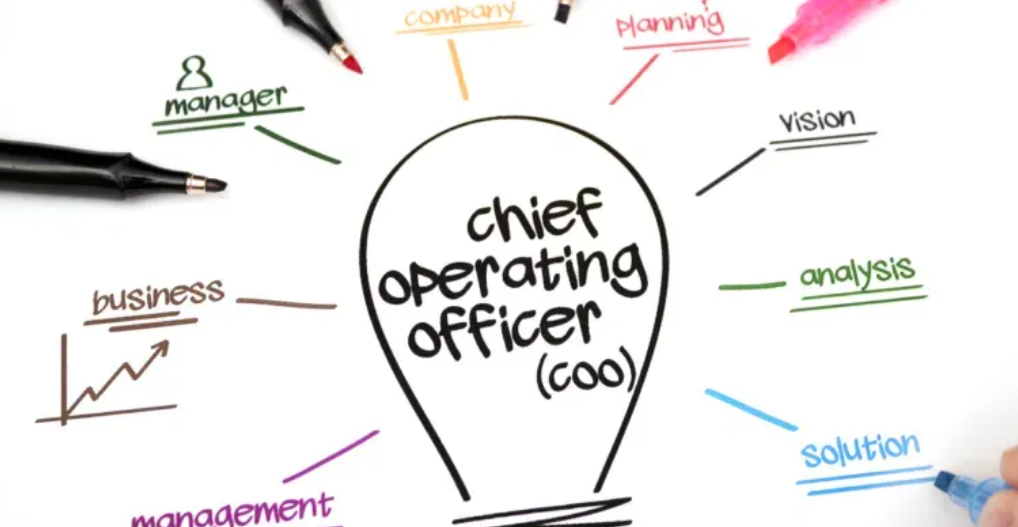
Whether you're a team lead, a founder, or an ambitious individual contributor, developing a COO mindset can make you indispensable. It's the difference between being a doer and being a driver.
The COO mindset isn’t about title—it’s about perspective. It’s about treating the business like it’s your own, proactively identifying friction points, and thinking multiple steps ahead. It means taking full ownership of results, building repeatable systems, and becoming someone others rely on for clarity and calm in the chaos of growth. People with a COO mindset don’t wait to be told what’s broken; they’re already working on the fix. They aren’t afraid to get tactical, but they stay connected to the bigger picture. This mentality accelerates careers, sharpens decision-making, and builds influence far beyond a job description. If you want to lead—or lead better—this is where to start.
Here’s how to develop a COO mindset that will make you an invaluable operator in any startup or growth-stage company.
1. Zoom In AND Zoom Out
COOs constantly shift between execution and strategy. You should too. Ask yourself daily:
- Am I solving today's problem?
- Am I keeping an eye on the system that's creating it?
For example: if customer onboarding is slow, don’t just fix the form—ask what process, team ownership, or upstream decision made that form necessary in the first place.
A COO's superpower is perspective. They can see how one department’s inefficiency affects another’s outcome. If you're constantly shifting focus between the work you're doing and the system it's part of, you’re already thinking like an operator.
This kind of systems-level awareness isn’t just helpful—it’s transformative. You begin to notice how team dynamics, process gaps, or unclear ownership ripple across functions. Instead of being reactive, you anticipate issues and build better upstream inputs. For instance, an inefficient onboarding process may be a hiring problem in disguise, or repeated bugs may indicate weak cross-functional handoffs. Thinking like a COO means seeing your company as an interconnected organism rather than siloed departments. It allows you to diagnose root causes and create holistic solutions. With this mindset, you don’t just optimize within your function—you raise the performance of the entire business.
2. Prioritize Systems, Not Fire Drills
A good operator doesn’t just solve problems—they prevent them. That means:
- Creating templates
- Building dashboards
- Documenting decisions
Every time you solve something, ask: "What system can make this friction disappear permanently?"
This mindset forces you to think about durability. Not "how do I do this quickly?" but "how do we never need to solve this again?" It’s the difference between being reactive and being process-oriented.
It also creates consistency across teams and functions. When systems are well-defined, team members don’t waste time reinventing the wheel or guessing at expectations. Systems enable delegation and scale—two essentials for any fast-growing startup. A strong operator also revisits systems regularly, updating them as the company evolves.
Preventing future fires isn't a one-time act; it's a continuous habit of observing patterns, identifying bottlenecks, and designing better defaults. This approach helps teams operate with clarity and autonomy, which is the backbone of sustainable growth.
3. Own Outcomes, Not Just Tasks
COOs don't just do work—they own business results. If you want to think like one, look beyond your lane. Ask: "What does success look like across the org?" and "How does my work impact the bottom line?"
For example: don't just launch a campaign—own pipeline growth. Don’t just run onboarding—own retention. Don’t just ship a product feature—own adoption and impact.
When you start connecting your work to outcomes, you shift from being a contributor to a strategic partner. You’ll uncover dependencies, anticipate roadblocks, and become someone your leadership team trusts to move the business forward.
Becoming outcome-oriented means connecting your work to customer success, revenue, and efficiency. It’s what separates theoretically high-potential talent from actual future executives. Thinking in outcomes also helps you communicate more effectively to leadership, showing not just what you did, but why it matters.
4. Know the Metrics that Matter
Every strategic operator understands the business model and major business drivers deeply. You should know:
- CAC, LTV, Gross Margin, Churn, NRR
- What inputs affect those metrics
- What levers move them in your area
You don’t have to be in finance to be financially fluent. Schedule regular time with RevOps or FP&A to learn.
PRO TIP: One exercise I give mentees is to take your business’s P&L and walk through each line. Ask how your role affects each. If you’re in marketing, how do your campaigns impact CAC and payback? If you’re in CX, how do you influence retention or upsell?
Even if you’re not directly tied to revenue, understanding these numbers will help you make better strategic decisions and communicate your impact more effectively. Metrics are not just for finance—they are for anyone who wants to understand how their daily decisions contribute to the company’s long-term health.
- If you’re in product, you should understand how feature adoption affects expansion revenue
- If you’re in support, look at how resolution time impacts churn
Becoming fluent in these metrics enables better cross-functional collaboration, and it’s a powerful way to build trust with leadership. If you want to be seen as a strategic operator, not just a functional expert, knowing your numbers is non-negotiable.
5. Communicate Like a Bridge
Great COOs translate across levels: from CEO to team lead to board. To start practicing:
- Use structured, bullet-point updates
- Create dashboards that answer real business questions
- Summarize problems with context and potential solutions
PRO TIP: treat every update like it might be forwarded to the board.
You should also learn how to translate between teams. Sales talks in terms of pipeline. Engineering talks in terms of velocity. Finance talks in terms of margin. Learn their language, and you'll become the connective tissue of your company.
Conclusion
Thinking like a COO is ultimately about stepping into a mindset of ownership, systems thinking, and cross-functional empathy. Whether or not you ever hold the title, adopting these principles will elevate your career, your team, and your organization. Great operators aren’t just efficient—they’re strategic, outcome-driven, and deeply connected to how the business works.
By learning to zoom in and out, optimize for scale, and communicate with clarity, you’ll start showing up as a force multiplier within your org. And if you’re already managing people or processes, these habits will help you drive more alignment, trust, and business impact over time. This mindset is learnable—and the earlier you adopt it, the faster you'll grow into senior leadership roles.
Want help stepping into operator mode? I mentor future COOs, founders, and strategic generalists ready to uplevel. Book a session with me here.







